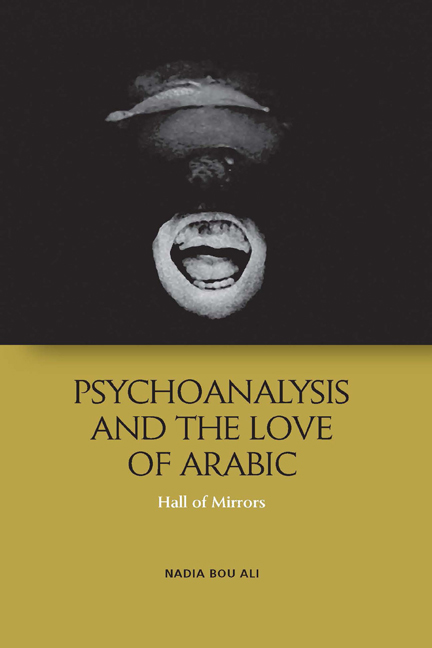Book contents
- Frontmatter
- Contents
- Acknowledgements
- Dedication
- Introduction: The Mirror of Language
- 1 Literature as a Ruthless Excavator of Culture: From the Literary Mode of Being to Lituratterre
- 2 Why is There Lalangue Rather than Nothing? Love of Lugha and Lalangue
- 3 Piercing the Bull’s Eye: The Sexual (Non-)Relation
- 4 A Liberal Psycho-theology
- Conclusion: The Abstractions of Homo Economicus: Now a Stomach, Now an Anus 161
- Notes
- Index
3 - Piercing the Bull’s Eye: The Sexual (Non-)Relation
Published online by Cambridge University Press: 17 September 2020
- Frontmatter
- Contents
- Acknowledgements
- Dedication
- Introduction: The Mirror of Language
- 1 Literature as a Ruthless Excavator of Culture: From the Literary Mode of Being to Lituratterre
- 2 Why is There Lalangue Rather than Nothing? Love of Lugha and Lalangue
- 3 Piercing the Bull’s Eye: The Sexual (Non-)Relation
- 4 A Liberal Psycho-theology
- Conclusion: The Abstractions of Homo Economicus: Now a Stomach, Now an Anus 161
- Notes
- Index
Summary
Shidyaq wrote in an era when capitalism had already made its way into the Ottoman Empire. Scribal work was already an inheritance to be refused, the discourse of the master was in recession and the crumbling symbolic order presented itself at every corner: in the home, where cultural practices of generosity impoverished his family; and most importantly in the traditional schools (kuttab), where learning grammar was harder than ‘scratching your own balls’. Rejecting the impotent work of scribes and grammarians, Shidyaq invoked metaphors of ejaculation to describe his version of linguisteriks. The writing of his pen is described as a ‘cut’ (shiq al-qalam): an incision into the symbolic sphere, from which a sense of pleasure is derived, yet one that does not satisfy. Instead of the rampant seraglio, the paradise of pure enjoyment, the liberalising sphere of empire is experienced as a zone of impotence, a place in which pleasure can no longer be derived from coitus, if it ever has been. Pleasure cannot be derived from the sweet taste of sin even; rather, paradise itself, the promised paradise of satisfaction, is like the ‘fruit of the zaqqum tree’, a tree that grows in hell whose fruits taste bitter and ‘its nectar like pus’. The foul taste of a world in which masters can no longer be identified is experienced at once as a penetrating force and an excessive pressure. Shiyaq wrote, ‘I once thought the world is like the vulva for both are stuffing in shape, I say it's more like the anus in its circularity’. He compares the release experienced through the written word to a precipitation from the bottom up, a painful emptying out that through the ‘narrow slit’ of the pen.
Writing is a literal emptying out of the nozzle of the pen. It is a result of offering oneself to the desire of an Other who is perceived as a seductress the pursuit of whom is the pursuit of divine providence itself: ‘my books had taken against me as a wife does her husband and I have decided to have nothing more to do with them’. He continues ‘ my intention in writing this book has been to approach closer to them and use it to appease, not anger, them’.
- Type
- Chapter
- Information
- Psychoanalysis and the Love of ArabicHall of Mirrors, pp. 98 - 136Publisher: Edinburgh University PressPrint publication year: 2020



